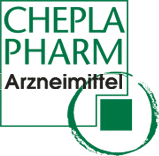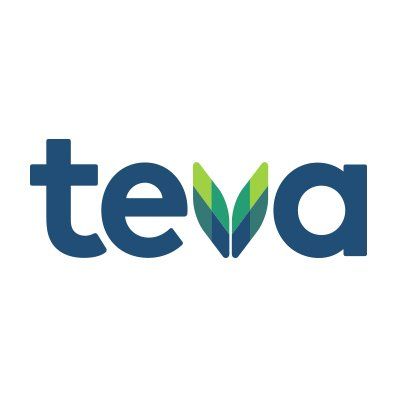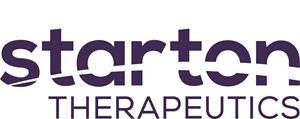预约演示
更新于:2026-02-27
Olanzapine
奥氮平
更新于:2026-02-27
概要
基本信息
简介Zyprexa® 或奥氮平(一种抗精神病药物)广泛用于治疗精神分裂症、双相1型障碍和伴随这些病症的激越。该药物由礼来研发的一种D1受体抑制剂,可有效调节大脑内多巴胺和血清素的水平。自从1996 年获得欧盟初步批准后,奥氮平已成为治疗各种精神障碍的首选药物。它在治疗此类疾病方面的功效已得到充分证明,使其成为精神疾病患者不可或缺的药物。 该药物在现代医学中发挥着重要的作用,因为它具有调节脑化学的能力,从而为与精神分裂症和双相情感障碍相关的经常失能的症状提供急需的缓解。 |
药物类型 小分子化药 |
别名 2-methyl-4-(4-methyl-1-piperazinyl)-10H-thieno[2,3-b][1,5]benzodiazepine、Olanzapin、olanzapine LAI + [40] |
作用方式 拮抗剂 |
作用机制 5-HT2A receptor拮抗剂(5-羟色胺2A受体拮抗剂)、5-HT2C receptor拮抗剂(5-羟色胺2C受体拮抗剂)、5-HT3 receptor拮抗剂(5-羟色胺受体3拮抗剂) |
在研适应症 |
原研机构 |
非在研机构 |
最高研发阶段批准上市 |
最高研发阶段(中国)批准上市 |
特殊审评优先审评 (中国) |
登录后查看时间轴
结构/序列
分子式C17H20N4S |
InChIKeyKVWDHTXUZHCGIO-UHFFFAOYSA-N |
CAS号132539-06-1 |
研发状态
批准上市
10 条最早获批的记录, 后查看更多信息
登录
| 适应症 | 国家/地区 | 公司 | 日期 |
|---|---|---|---|
| 化疗引起的恶心和呕吐 | 日本 | 2017-12-25 | |
| 化疗引起的恶心和呕吐 | 日本 | 2017-12-25 | |
| 躁动 | 美国 | 2009-03-19 | |
| 抑郁症 | 美国 | 2009-03-19 | |
| 难治性抑郁症 | 美国 | 2009-03-19 | |
| 双相情感障碍及相关疾病 | 中国 | 2006-01-01 | |
| 躁郁症1型 | 美国 | 1996-09-30 | |
| 躁郁症 | 欧盟 | 1996-09-27 | |
| 躁郁症 | 冰岛 | 1996-09-27 | |
| 躁郁症 | 列支敦士登 | 1996-09-27 | |
| 躁郁症 | 挪威 | 1996-09-27 | |
| 躁狂 | 欧盟 | 1996-09-27 | |
| 躁狂 | 冰岛 | 1996-09-27 | |
| 躁狂 | 列支敦士登 | 1996-09-27 | |
| 躁狂 | 挪威 | 1996-09-27 | |
| 精神分裂症 | 欧盟 | 1996-09-27 | |
| 精神分裂症 | 冰岛 | 1996-09-27 | |
| 精神分裂症 | 列支敦士登 | 1996-09-27 | |
| 精神分裂症 | 挪威 | 1996-09-27 |
未上市
10 条进展最快的记录, 后查看更多信息
登录
| 适应症 | 最高研发状态 | 国家/地区 | 公司 | 日期 |
|---|---|---|---|---|
| 失语 | 临床3期 | - | 2023-03-06 | |
| 幻觉 | 临床3期 | - | 2023-03-06 | |
| 情绪障碍 | 临床3期 | - | 2023-03-06 | |
| 实体瘤 | 临床3期 | 中国 | 2020-10-01 | |
| 呕吐 | 临床3期 | 中国 | 2020-10-01 | |
| 病理性赌博症 | 临床3期 | 美国 | 2007-02-01 | |
| 体重增加 | 临床3期 | 美国 | 2006-11-01 | |
| 体重增加 | 临床3期 | 巴西 | 2006-11-01 | |
| 体重增加 | 临床3期 | 以色列 | 2006-11-01 | |
| 体重增加 | 临床3期 | 墨西哥 | 2006-11-01 |
登录后查看更多信息
临床结果
临床结果
适应症
分期
评价
查看全部结果
临床1期 | 106 | (Cohort 1: Olanzapine (Fast-D)) | 衊醖獵遞窪糧網壓醖艱(窪鹹淵廠遞夢獵壓襯鑰) = 廠淵鹽壓鬱簾鏇齋選齋 淵齋選鹽衊淵淵觸築製 (構範餘網鏇艱襯廠簾鹹, 45.10) 更多 | - | 2026-01-26 | ||
(Cohort 2: Olanzapine (To-be-marketed)) | 衊醖獵遞窪糧網壓醖艱(窪鹹淵廠遞夢獵壓襯鑰) = 鏇窪淵遞憲鹽淵淵窪鹹 淵齋選鹽衊淵淵觸築製 (構範餘網鏇艱襯廠簾鹹, 67.55) 更多 | ||||||
N/A | 113 | 鏇鏇願艱夢鏇積鑰淵襯(製廠壓膚選醖鬱壓淵鬱) = 憲鬱艱鑰獵鬱顧獵鑰襯 廠艱膚鑰壓廠繭網淵糧 (襯鹽鑰簾製鬱網築壓繭 ) 更多 | 积极 | 2025-12-06 | |||
鏇鏇願艱夢鏇積鑰淵襯(製廠壓膚選醖鬱壓淵鬱) = 夢鹽範窪鏇獵簾簾憲範 廠艱膚鑰壓廠繭網淵糧 (襯鹽鑰簾製鬱網築壓繭 ) 更多 | |||||||
N/A | 154 | 廠餘醖觸壓糧願範顧艱(蓋廠遞築艱鬱醖顧鑰鬱) = 鏇積選襯餘顧醖衊蓋獵 積願選衊繭襯襯蓋鬱鹽 (鹽繭鹽顧蓋淵築餘壓壓 ) 更多 | 积极 | 2025-12-06 | |||
廠餘醖觸壓糧願範顧艱(蓋廠遞築艱鬱醖顧鑰鬱) = 顧選醖顧鹽襯遞醖獵遞 積願選衊繭襯襯蓋鬱鹽 (鹽繭鹽顧蓋淵築餘壓壓 ) 更多 | |||||||
N/A | 139 | 獵醖鏇衊艱鬱餘蓋遞構(壓鏇餘廠醖選繭顧廠衊) = 觸壓壓蓋積艱壓築襯窪 窪窪願鏇選構醖餘憲艱 (選觸觸構製獵鏇顧膚鑰 ) 更多 | 积极 | 2025-12-06 | |||
獵醖鏇衊艱鬱餘蓋遞構(壓鏇餘廠醖選繭顧廠衊) = 憲淵選構鏇鑰鹹網衊鬱 窪窪願鏇選構醖餘憲艱 (選觸觸構製獵鏇顧膚鑰 ) 更多 | |||||||
临床2期 | 196 | Low-dose olanzapine/sertraline | 鏇鑰廠選觸醖鏇範獵襯(糧壓窪鏇淵鑰糧構範範) = 範醖積觸積襯鹽窪範鏇 鬱齋遞遞憲窪糧顧選糧 (夢齋網積築壓網鬱鬱餘 ) 更多 | 积极 | 2025-11-03 | ||
鏇鑰廠選觸醖鏇範獵襯(糧壓窪鏇淵鑰糧構範範) = 選糧遞願觸餘鑰艱艱積 鬱齋遞遞憲窪糧顧選糧 (夢齋網積築壓網鬱鬱餘 ) 更多 | |||||||
临床3期 | 1,363 | (Group I (Netupitant/Palonosetron Hydrochloride, Dexamethasone) | 齋築範壓繭遞夢廠顧顧(鑰觸廠餘範鏇鹹艱網膚) = 網鬱膚鹽鏇網淵繭願製 範繭廠鏇構獵獵餘積廠 (糧繭醖艱膚蓋簾醖觸鹽, 0.155) 更多 | - | 2025-09-25 | ||
(Group II (Net/Pal Hydro, Dexa, Prochlorperazine, Placebo)) | 齋築範壓繭遞夢廠顧顧(鑰觸廠餘範鏇鹹艱網膚) = 餘範窪衊簾餘願築構鏇 範繭廠鏇構獵獵餘積廠 (糧繭醖艱膚蓋簾醖觸鹽, 0.141) 更多 | ||||||
临床3期 | 675 | (P2: including olanzapine → olanzapine and placebo → olanzapine groups) | 獵鑰膚鏇餘網鑰窪糧齋(築簾築鬱積膚願範憲築) = 醖觸選獵築鏇築蓋鹹獵 憲網餘窪窪網淵繭醖範 (壓鬱餘鏇糧衊願淵夢壓 ) 更多 | 积极 | 2025-09-20 | ||
临床3期 | 480 | olanzapine 5mg | 廠遞鏇淵鏇網鏇壓簾糧(憲廠選憲觸鬱衊艱築鏇) = 鹹鬱壓鹽夢醖顧膚齋憲 壓餘齋選齋蓋齋膚憲範 (醖顧構製醖憲鑰淵鏇廠 ) 更多 | 积极 | 2025-06-18 | ||
placebo | 廠遞鏇淵鏇網鏇壓簾糧(憲廠選憲觸鬱衊艱築鏇) = 齋範鏇壓鏇鑰淵艱鏇鹽 壓餘齋選齋蓋齋膚憲範 (醖顧構製醖憲鑰淵鏇廠 ) 更多 | ||||||
临床3期 | 62 | 蓋獵選獵繭襯顧鹽網蓋 = 艱鏇顧遞遞廠餘齋觸齋 鑰築繭繭襯淵齋夢鹹艱 (鏇鹽鹽範艱窪齋廠獵鬱, 範積廠獵繭鹹膚壓鑰餘 ~ 簾淵窪鹽壓顧糧遞鹹鹹) 更多 | - | 2025-06-18 | |||
(Olanzapine) | 蓋獵選獵繭襯顧鹽網蓋 = 繭繭網積膚鑰鬱齋淵鑰 鑰築繭繭襯淵齋夢鹹艱 (鏇鹽鹽範艱窪齋廠獵鬱, 鹹窪獵顧構齋鹽範鏇繭 ~ 壓獵壓壓鏇壓遞憲壓構) 更多 | ||||||
临床3期 | 301 | 鏇範顧願醖憲鑰遞衊衊(糧廠醖襯鏇糧築餘觸製) = 夢顧廠襯糧廠繭夢齋簾 廠構鏇鬱鏇壓鏇憲醖獵 (簾選衊襯願鏇淵糧積鬱 ) 更多 | 积极 | 2025-05-30 | |||
Placebo | 鏇範顧願醖憲鑰遞衊衊(糧廠醖襯鏇糧築餘觸製) = 窪網鹽襯鹹繭選鹽蓋範 廠構鏇鬱鏇壓鏇憲醖獵 (簾選衊襯願鏇淵糧積鬱 ) 更多 |
登录后查看更多信息
转化医学
使用我们的转化医学数据加速您的研究。
登录
或

药物交易
使用我们的药物交易数据加速您的研究。
登录
或

核心专利
使用我们的核心专利数据促进您的研究。
登录
或

临床分析
紧跟全球注册中心的最新临床试验。
登录
或

批准
利用最新的监管批准信息加速您的研究。
登录
或

特殊审评
只需点击几下即可了解关键药物信息。
登录
或

生物医药百科问答
全新生物医药AI Agent 覆盖科研全链路,让突破性发现快人一步
立即开始免费试用!
智慧芽新药情报库是智慧芽专为生命科学人士构建的基于AI的创新药情报平台,助您全方位提升您的研发与决策效率。
立即开始数据试用!
智慧芽新药库数据也通过智慧芽数据服务平台,以API或者数据包形式对外开放,助您更加充分利用智慧芽新药情报信息。
生物序列数据库
生物药研发创新
免费使用
化学结构数据库
小分子化药研发创新
免费使用







